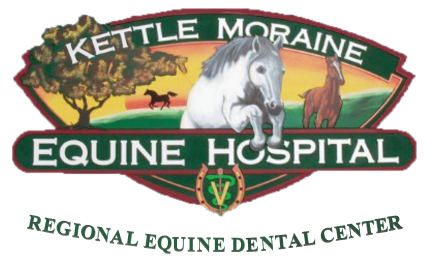Alerts!
Equine Herpesvirus-1
The Wisconsin state veterinarian recommends that horses with a fever and symptoms of contagious respiratory infection should be kept at home and not taken to shows, competitions, clinics or public trail rides. Horse owners should also be aware that transportation of horses to competitions, shows and clinics may increase the risk of exposure to infectious organisms. Although humans can’t be infected by EHV-1, they can aid in spreading it to their horses. Therefore, owners of affected horses should wash and disinfect their hands and change their clothes before coming into contact with healthy horses to prevent the potential spread of these infectious organisms.
Kettle Moraine Equine Hospital and The Wisconsin Department of Agriculture, Trade and Consumer Protection will provide updates to the veterinary, and horse community, as situations evolve.
As a reminder: test results that are confirmed to be positive for EHV must be reported to the Division of Animal Health at the Wisconsin Department of Agriculture, Trade and Consumer Protection within 10 days.
Please see below – Client Resources
CLIENT RESOURCES:
Educational handouts on EHV-1:
U.S. Department of Agriculture EHV brochure (Please be patient as this is a large file and may take some time to download)
U of M Center for Animal Health and Food Safety EHV-1 fact sheet (look for “Equine Herpesvirus 1” in the alphabetical list)
Websites with well organized EHV-1 information:
University of California, Davis, School Vet Med– detailed and practical information about handling sick horses, diagnostic testing, and control
Additional Resources:
USDA Equine Biosecurity Brochure (available in Spanish as well through USDA/APHIS)

